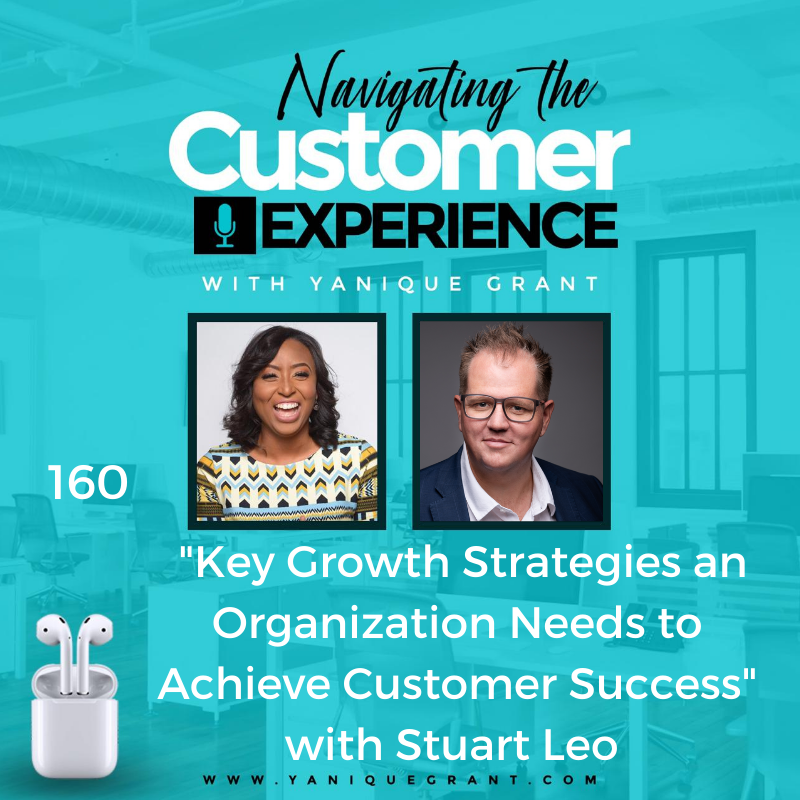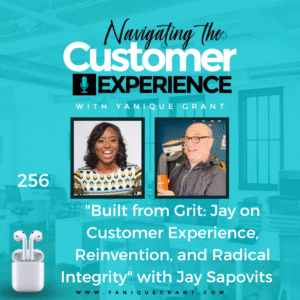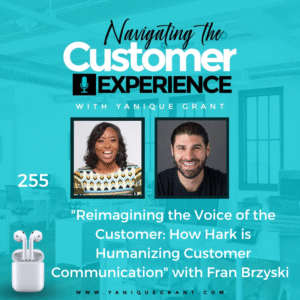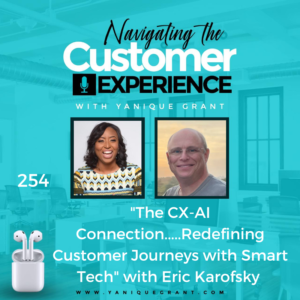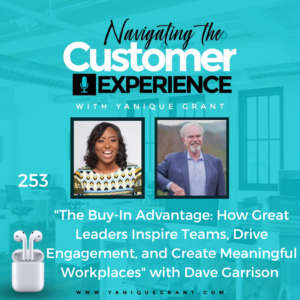Stuart Leo is the founder and CEO of Waymaker.io – an intelligent business management platform that helps leaders build a better business in 30 days.
Stuart is a global thinker in strategy, systems and leadership development. As a founder of Waymaker.io, he has led the creation of Waymaker’s Leadership Curve – a revolutionary way of building clarity, alignment and remarkable results for any organization.
Questions
- Could you take maybe one or two minutes just to kind of share with us a little bit about your journey, even though I did read a very short piece on you, it’s good when we ask our guests to express in their own words, how they got to where they are today.
- What are three keys to growth for any organization?
- Now, strategy is very important for business. Why do you think for some businesses strategy tends to be confusing? And how can leaders become more strategic in their decision making?
- Could you share with us what’s the one online resource, tool, website or app that you absolutely can’t live without in your business?
- Could you share with us maybe one or two books that have had the biggest impact on you? It could be a book that you read or listen to many years ago or even one that you’ve engaged with recently.
- Could you share with us what’s the one thing that’s going on in your life right now that you’re really excited about? Either something you’re working on to develop yourself or your people.
- Where can listeners find you online?
- Do you have a quote are saying that during times of adversity or challenge, you will tend to revert to this quote, it kind of helps to get you back on track if for any reason you got derailed or you got off track.
Highlights
Stuart’s Journey
Stuart shared that the journey is much like many other startup founders. He loves business, he loves working with people. He loves serving others in business, that’s why we all do what we do. And for a very long time, he worked in corporate life and jumped out of corporate life to get out and do his own thing as you always are inspired to do.
And then for about 10 years he ran a consulting company, working in strategy and brand and sales tech and mar tech. And obviously, customer experience was a huge component of that. And then, along the way, they started seeing and observing problems that their clients would have, that they realized could be best solved with some software, as opposed to just some advisory services.
And so, they ended up pivoting which is always a fun journey, and developing a platform they call Waymaker.io, which at the end of the day is there to help you build a better business, and they help people get unstuck in their business, they help people find breakthrough and they help leaders put the leadership and management operating systems in place so that they can step back from their business and enjoy all the things that their business should provide them in terms of lifestyle and freedom.
So, a very traditional way of doing a startup, the more he listened to other startup founders, everybody comes from another business, you see a problem and you jump in, and you want to get in there and solve it. And that’s really his journey.
Three Keys for the Growth of any Organization
When asked what are the three keys to growth to any organization, Stuart shared that number one, you must, must be clear on the problem you’re solving and if you’re not, then you would have lost focus. So number one, what is the problem we’re solving, and that is the ultimate underlying purpose of the organization.
There is no other purpose outside that organization but to solve the problem, you exist to solve for your customer. It’s very easy for organizations to get lost when they lose focus on their purpose and their purpose is their problem, we exist to solve X problem for a customer. And that’s number one.
Number two, you must build people by building skills. Fundamentally there are two things you must build in every organization. The first is skills and the second is systems.
So number three, the third key to growth is the implementation, development of systems. There’s a bit of a myth sometimes out there in business world that he thinks exists and that is that you must systemize everything. And he thinks that’s actually a fallacy, you’re only telling half the story.
You must build people who can be supported with systems and as we build people through skills and leadership development, and then support them with great systems and process then they can do amazing things.
So three keys to growth, number one, must, must, must be really clear on the problem solving, never navigate away from that. Number two, build people. Number three; build the systems to support those people.
Me: Do you think one is more important than the other, people versus systems?
Stuart shared that he always thinks people are more important than systems when it comes down to an organization and he thinks that’s a philosophical answer versus a practical answer.
We should value a system for the return it makes on a business and we should value a human because they’re human. And he thinks often we get that bit round the other way and systems become more important than humans. And so, that’s when he thinks humans feel like they’re cogs in a machine, whether they be a customer or an employee.
And he thinks that’s that the underlying secret. He’s a big believer that that skills, which is ultimately building people far more important than the systems. Because the systems won’t work if you don’t have people with the skills. He always say this, there’s no point putting in amazing systems, they’re like Ferraris in your organization and sticking learner drivers in them, all they’re going to do is crash on the first corner.
Leaders Becoming More Strategic in Their Decision Making
Me: Now, strategy is very important for a business. Why do you think for some businesses strategy tends to be confusing? And how can leaders become more strategic in their decision making?
Stuart stated that that is such a good question. He actually wants to step back and really challenge this idea of strategy. And he’s a big fan of big thinkers and one of the biggest thinkers in the world in this space is Michael Porter from Harvard, who wrote the book on it.
And he loves his statement that everybody in the world thinks that strategy is a set of actions. In fact, if you Google the word strategy, Google’s going to tell you, it’s a set of actions. And that’s in a business context, that’s actually wrong, that’s not what strategy is.
And strategy is a position that we hold in the marketplace. And it’s psychological first, and practical second, and he thinks that’s the big mistake we all get wrong in business.
If we get the strategy right, i.e., the position we hold in the market, this is why the customer aspires to buy from us, and to experience our product. If we get that right, then the practical actions fall into gear.
So, strategy is first and foremost, a psychological moment, it’s a position in the mind of the customer, in the mind of the marketplace that we pursue or hold and defend.
And then it’s a set of actions to either build it, hold it, defend it, or grow it. And that’s what strategy is, strategy isn’t an action plan and we’ve got to get that thinking out of our heads in the business world, and go, our strategy is to be this kind of business, for this kind of customer, for these reasons, that’s strategy.
And when that’s really clear in an organization, you can be strategic at every level of the organization; a frontline customer service person can go, yeah, I get it. I know that this is who I’m meant to be, because this is what the customer expects of us, the brand. Boom, great. They’re now strategic. Does that make sense?
Me: It does definitely. So there’s a book as you were talking about strategic thinkers, because there’s a book, it talks about what kind of thinker you are. I’m trying to remember, the book is actually called What kind of thinker Are you? Have you ever heard of that book before?
Stuart stated that he’s going to plead ignorance. He’s not exactly sure but give him some more information.
Me: In the book it talks about like strategic thinkers, bottom line thinkers, possibility thinkers, it’s a really, really popular book, but he has a workbook for that book that you would do with leaders to kind of figure out their thinking style. I use it a lot sometimes, especially when I’m training leaders because I find some people think that everybody thinks the same way. And I think in an organization, we all can’t be thinking strategically, right?
Stuart shared that if we put it in that context, of course, yes.
Me: So I just wanted to know what your thoughts were on the different thinking styles. I can’t remember the name of the book, it’s going to come to me before I finish this conversation with you but it popped in my head just now when you said it. The book is by John Maxwell How Successful People Think.
Stuart shared that he loves John Maxwell. He has inspired him in so many occasions, wonderful guy. To answer your question, can everybody be a strategic thinker?
Well, it comes down to the context of the roles and responsibilities. But everybody thinks differently and that’s a good thing. If we’re not thinking well together, then we’re not working well together.
And in fact, if he’s remembering rightly, one of the great things that John Maxwell says about thinking is that when we think we connect facts and feelings, and we pursue the truth out of that process. And he actually love that statement coming from John Maxwell. And he thinks if we just dwell on that for a moment, we can’t do that as teams, if we don’t have a diversity of thinking styles and that’s just really obvious, if we’re all thinking in the same way, the same thoughts, from the same context, and not critically challenging each other around what is the objective truth in the situation, then, groupthink will set in and groupthink is cancerous to any strategic thinking. And we’ve got to get that out of our organizations.
And so, he thinks, absolutely, they want that constructive thinking. It reminds him actually of an old CEO he had when he was in corporate life, which he’s talked about on podcasts before.
As a very young guy growing up in business in the corporate world, a big urban renewal, an urban development company and the kind of work they did was very complex, redeveloping town centres or master plan communities and neighborhoods. And so, around the table, you had engineers and planners and finance people and social community development people and marketers and sales people and lots of different types of thinkers. Engineers are very analytical, logical, rational, marketers, crazy, conceptual, off the wall, community people are touchy feely, social kind of minded, there’s a catalyst of different types of thinkings in that room, and you’ve got to come together, and you’ve got to agree on a plan, what’s this neighborhood going to look like? What’s the urban design, what’s the layout? What’s the look and the feel?
And he remembers he embedded into that organization, this wonderful principle of working together, which he called “Arguing gracefully.” He’s carried it with him for 20 years ever since. And the big idea he was really trying to get into the culture of the business was that when you get into that boardroom and you’re a bunch of people sitting around a table, you want to fight for the best outcome, you want to create a place that’s worth living in, something that’s special.
And to do that, you’ve really got to let the sparks fly, nothing great happens without a little bit of friction. And you can either walk out of that boardroom hating each other, which is not conducive to great teamwork. Or you could walk out of that boardroom after a really challenging workshop, still friends and colleagues.
And so, he instilled this wonderful principle of culture of arguing gracefully, which meant, go for it, when it comes to the debate, die in a ditch and go for a challenge, bring new ideas to the table, argue your point, debate. But do it with a measure of grace so that you argue the point, not the person, and so that when you walk out of that room, you’re still a team, and that team can execute.
And that’s always stuck with him. And he thinks that really hits on your point. People with different thinking styles, can they think strategically? Absolutely. Because when we think strategically together, it requires those different thinking styles to come together and argue what matters most, to come up with the best plan, walk out of the room and still be a team and be better for the argument. And he thinks that’s a skill lost, not just in business but in society, that’s a very precious skill to hold on to in building teams in today’s world.
App, Website or Tool that Stuart Absolutely Can’t Live Without in His Business
When asked about an online resource that he cannot live without in his business, Stuart shared that he would be wrong if I didn’t mention Waymaker.io right now. It is a daily tool in their business because it not only helps them think strategically, but execute on a daily basis towards the goals that they’re going to hit. But hey, enough of the shameless plug.
The other number one software tool that he can’t live without, gosh, man, there’s so many. He doesn’t know if it’s a device. He couldn’t live without his iPhone and iPad, that kind of runs his world. But on top of that, he thinks the number one thing he just could not live without, he’s going to be really, really boring now. And he’s going to say Apple Notes because that is where everything goes. And it’s the most simple, practical note taking tool you’re expecting, that is where everything goes, and everything lives. And it’s so practical and helpful.
Me: I use Apple notes a lot too. And it has really come out far away over the years. You can literally dump anything into it and then because the Apple ecosystem is also integrated and connected, it doesn’t matter which device you’re on, you can pull up the note wherever you are and kind of just continue that conversation.
Stuart shared that he used to be a prolific user of Evernote, and because he didn’t think Apple notes was that great when it first came out. And so, for about six or seven years, everything went into Evernote. And it just got bloated; it just got too big and too complex. And he loves the simplicity. So, it’s one of those classic things, he and his wife, they run their renovation at their home through it, they captured notes in his work account. With some activities if they go camping, they’re going to put up a camping list and organize, they will share stuff with friends and families and colleagues. Beautiful, simple and powerful.
Books that Have Had the Biggest Impact on Stuart
When asked about books that have had the biggest impact, Stuart shared he will give two. He was given a book by a really good friend of his when he first went into business by a guy called Guy Kawasaki called The Art of the Start: The Time-Tested, Battle-Hardened Guide for Anyone Starting Anything. And he just loved that book. He loved it because it was at a time in his life when he was starting something and you’ve got to start it, you got to pitch it, you got to grow it. And so, that book, he thinks was just one of the best books of the last 10 or 15 years for anybody starting something, it’s a great inspirational book, gives you some really good practical tools. And Guy Kawasaki is just one of those really simple but very insightful business leaders. Have you have you read that?
Me: I haven’t heard of it. But I know Guy Kawasaki. But that’s definitely one I’ll be putting on my list to check out.
Stuart stated that it’s an oldie but a goodie. More recently, his favourites has been Extreme Ownership: How U.S. Navy SEALs Lead and Win by Jocko Willink, which is the story on how U.S. Navy SEALs work together with discipline and achieve amazing results or whatever the subline is, but Extreme Ownership is the idea of owning your team, owning your outcomes, being accountable and responsible and leading others effectively through this discipline of extreme ownership. He has given that to almost every person in his world, he thinks it’s a great book.
What Stuart is Really Excited About Now!
Stuart shared that they’re a classic startup, so they’re in a startup journey. What’s the one thing going on that he’s super excited about first them and their people; it’s the foundational steps they’re taking as a business as they put in place the things that he knows are going to be here for years to come.
They spent about 12 to 18 months working on their product and business, doing some testing and pilot work and MVPs. And they really only launched their product six to nine months ago, they’re very young. And so now they’re securing their first customers around the world and working with them and seeing the company come alive.
And so, the most exciting thing that’s happening for them right now is learning how to deliver excellence to their customers. They don’t always do it perfectly and when they don’t, they want to learn and they want to know we want to get it right. And secondly, how do they develop that employee experience well, and how do they build team well. So those two things are the two really exciting things going on in their world right now, growing customers and growing team members.
Where Can We Find Stuart Online
LinkedIn – Stuart Leo
Quote or Saying that During Times of Adversity Stuart Uses
When asked about a quote or saying that he tends to revert to, Stuart shared that might give two. One in business is the realization or the saying is that, “The business you start is never the business you run.” And he thinks that’s a really healthy thing to remember because businesses grow and mature and adapt and tweak and sometimes we have an idea of the business we’re building and we get frustrated sometimes because it’s not what we wanted originally. But it’s not what we want in a business; it’s what our customers need. And so, more often than not, the business we start is never the business we run and that’s a really healthy thing to remember if we’re feeling frustrated, or have some kind of dissonance or friction going on in the business. And we’ve always got to come back to:
- What’s the problem we’re solving?
- Are we solving effectively?
- Are our customers getting value from the way we’re solving it?
- What do we have to think about changing in ourselves and in our business to make that more effective?
And that’s a really healthy thing to come back to.
The other is one he and his wife always say to each other which is, “Life is an adventure.” And life is an adventure and it’s just that recognition that in an adventure, you have a lot of fun, you have a lot of challenges, you get a bit muddy, you get a bit wet, sometimes you fall down the hillside, you get to have great campfires, and look at the starry nights.
And life is an adventure it. It has some surprises around the corner. And when you kind of just step back a little bit, not try and control the world, but kind of fall in line with God’s good design and order, you realize that life is a wonderful adventure and it’s there to be enjoyed. And we’re tatting but life is an adventure and it’s a wonderful thing to be a part of.
Please connect with us on Twitter @navigatingcx and also join our Private Facebook Community – Navigating the Customer Experience and listen to our FB Lives weekly with a new guest
Grab the Freebie on Our Website – TOP 10 Online Business Resources for Small Business Owners
Links
- The Art of the Start: The Time-Tested, Battle-Hardened Guide for Anyone Starting Anything by Guy Kawasaki
- Extreme Ownership: How U.S. Navy SEALs Lead and Win by Jocko Willink
The ABC’s of a Fantastic Customer Experience
Do you want to pivot your online customer experience and build loyalty – get a copy of “The ABC’s of a Fantastic Customer Experience.”
The ABC’s of a Fantastic Customer Experience provides 26 easy to follow steps and techniques that helps your business to achieve success and build brand loyalty.
This Guide to Limitless, Happy and Loyal Customers will help you to strengthen your service delivery, enhance your knowledge and appreciation of the customer experience and provide tips and practical strategies that you can start implementing immediately!
This book will develop your customer service skills and sharpen your attention to detail when serving others.
Master your customer experience and develop those knock your socks off techniques that will lead to lifetime customers. Your customers will only want to work with your business and it will be your brand differentiator. It will lead to recruiters to seek you out by providing practical examples on how to deliver a winning customer service experience!

